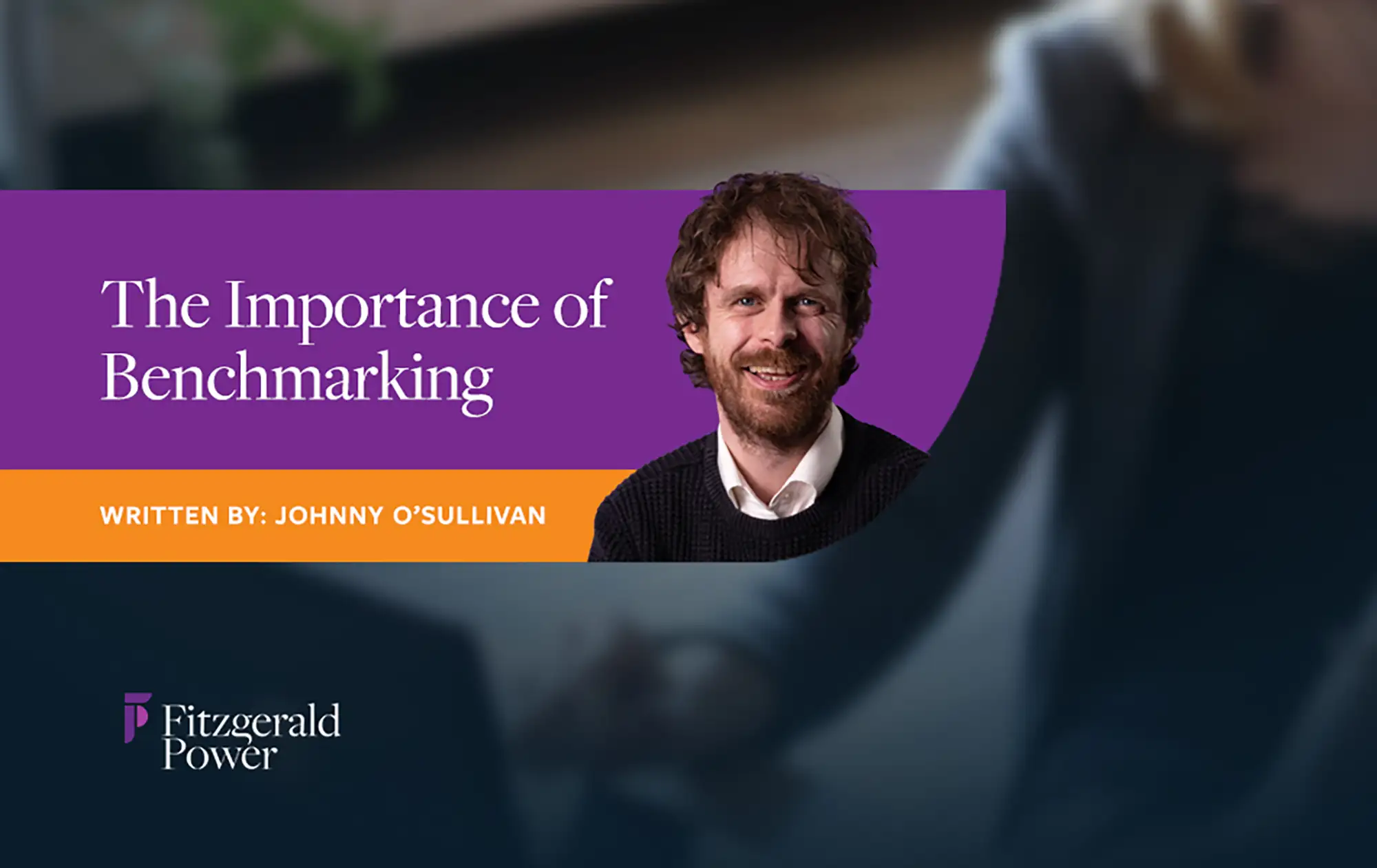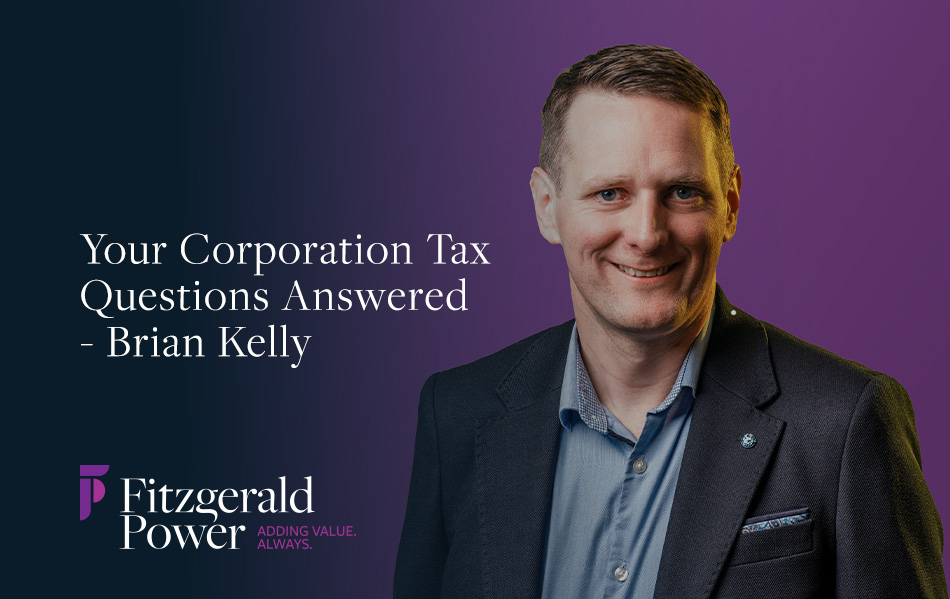Expertly Put is a series of exclusive conversations with industry experts, designed to help business owners and management teams gain a deeper understanding of the topics that matter most. In this edition, Jennifer Power sat down with Joe McVeigh, Head of the Corporate Department at BHSM, to discuss the implications, difficulties and things to consider when looking to sell your business.
Mergers and acquisitions involving privately owned companies generally entail a number of key legal, business, HR, IP, and financial considerations, which need detailed understanding should you wish to navigate a sale.
However, they don’t teach you this in start-up school. And for entrepreneurs who never thought they’d be in this position, the amount of information that is necessary for them to know can feel overwhelming. Thankfully, we’ve got an expert in to divulge exactly what processes are worth your time, and what aren’t.
Jennifer Power:
The first question that I am really keen to delve into is, from your experience, what are the critical legal factors businesses should consider before entering into any sort of transaction, be that M&A or a sale? And how can they prepare for potential legal hurdles?
Joe McVeigh:
First and foremost, the business owner must be committed to the sale process and that this is the right option for them. A sale process should not be confused with succession planning or incentivising management or some other form of reorganisation. Once that commitment is made, then the focus should move to ensuring the company is as clean as possible and you need to identify and mitigate potential legal or commercial risks.
You mentioned potential legal hurdles, and that’s really the key concern. You need to consider what problems are going to arise here: Are my contracts in order? Is my statutory register in order? Are my financials accurate, appropriate and adequately reflect the affairs of the company? Are there hidden issues – what skeletons are in the closet? These things will invariably be exposed during the transaction. And if you’re hoping they are not discovered, they typically will be and this can have a detrimental effect by delaying or derailing the transaction.
I think once a buyer and a seller agree on a price, very often the buyer thinks they’re buying the most perfect company, and the seller thinks they’re selling the most perfect company – and neither of those are generally true!
JP:
It’s a good point because these things generally take so much longer than you initially think they might. For example, getting key customer contracts correct and in place could take months, not weeks. Sometimes it may not go to plan.
JMCV:
Absolutely. Even with a perfect buyer and seller, it can take months to reach heads of terms. You’ll be gathering information, conducting analyses, and negotiating. From signing heads of terms, the ideal timeline to completion is around two months, but that’s in a best-case scenario.For the seller, preparation is key. Clean up any property issues, ensure you fully understand what assets are being sold, and get your house in order. This helps avoid delays and price chips.
JP:
Due diligence is often very time-consuming. But what are the key areas that you see as being overlooked? And I think you probably mentioned a number of them there.
JMCV:
Property issues can typically add complexities to a transaction. People often assume everything is in order but when you look at the terms of a lease, title documents are missing or fire safety certificates or planning permissions are not in place, it can threaten the ability of the Buyer to finance a deal.
Employment is another key factor here. You are legally obliged to have written terms of agreement with every member of staff. So, it is worthwhile ensuring you have appropriate employment contracts in place, ideally with key terms clearly outlined and having post-termination restrictions in place, is crucial.
JP:
That kind of strikes me as being within the seller’s control to get organised, get their house in order in relation to those employee contracts.
JMCV:
Exactly. A quick call to your solicitor or accountant can kickstart the process. Consider it as investing in your business to maximise value and attract the right buyer. It’s about preparing the ideal asset.
JP:
So, what are some of the most common deal breakers you see in M&A transactions?
JMCV:
It really depends on the circumstances as every deal is different, but there are some principles to know which help avoid a deal breaking down. Firstly, understand your key deal breakers. What are the absolute non-negotiables for you? Being clear on these points from the outset will help streamline negotiations.
Secondly, listen carefully to your advisors, legal and financial. They have experience in these types of transactions and can identify potential risks and opportunities that you might miss. Don’t be afraid to ask questions and ensure you understand the implications of every clause.
Thirdly, be prepared to compromise. Negotiations rarely result in everyone getting exactly what they want. A willingness to find mutually acceptable solutions is often necessary to reach an agreement.
Finally, don’t rush. Take the time to properly consider each aspect of the agreement. It’s better to spend a little longer ensuring you’re comfortable with the terms than to regret a hasty decision later. It’s not uncommon for a client, whether buyer or seller, to push back and say their advisors won’t let them sign an agreement with a particular clause. It is important to have both a legal and finance team working collaboratively to support you throughout the transaction. Heed their advice, as they will have likely encountered similar situations before.
JP:
A lot of it is coming back to preparation. Maybe if you are coming to the market two, three months later than you had wanted, as you said, it might be time well spent.
JMCV:
Definitely, and we’ve had some clients who have done pre-due diligence, where we can have a conversation with them about their company, request a copy of their lease, title documents, see what contracts are in place with customers, suppliers and key staff. You get a feel for a company very quickly when they do that. So, I think it is very well spent time to try and address that, in what I would call the ‘pre-due diligence’ stage.
JP:
Okay, slightly different question here. For businesses seeking investment, what are the key legal differences between raising funds through private equity, venture capital and debt financing?
JMCV:
Debt financing is typically used by established businesses with strong balance sheets. You retain equity, but you may need to offer security, and it can be expensive.
Venture capital usually targets early-stage, high-growth companies. You give up equity, and VCs may take board seats or influence strategy. But remember: these firms expect only a few of their investments to succeed. You’ll need to work hard to be one of those successes!
Private equity tends to be more structured, PE firms aim to buy at one value and exit at a significantly higher value in 4–5 years. This can include replacing or transitioning management teams.
JP:
My next question is linked to that. What are the biggest legal risks founders and business owners face when fundraising, and how can they avoid the common pitfalls? So I suppose, with founders… It’s really, are they willing to give away that equity?
JMCV:
The main risk is loss of control. You may start by giving away a small percentage, but as you raise further rounds, you can lose leverage. Aligning with the right investors is critical — people who understand your business and bring strategic value.
Disagreements will happen. Founders must be resilient and willing to pick their battles. Sometimes it’s smarter to concede on a specific point to preserve the bigger picture.
JP:
And I think we live in a world now where it’s a lot more transaction-based compared to Ireland 10, 20 years ago. You can fail and bounce back and get going again.
JMCV:
Yeah, I think there was a lot of that. There has been a lot of stigma about that over the years, but certainly that’s fallen away. Having failures in your past invariably means that by coming through that you are more resilient and well able to deal with future challenges which will inevitably come your way.
JP:
You said something about forming relationships. It seems to be especially important if it’s a transaction where the founder is staying in the business. Knowing who the investor is and knowing what type of relationship you’re going to have, even if it’s not ideal from your perspective, but going into that relationship with your eyes open is important.
JMCV:
It is very much so. But also, it’s important to negotiate the legal terms of that relationship so that you have certainty regarding your respective rights and obligations.
From a legal perspective, it’s really important that you haven’t given away any easy leverage. The key is negotiating a fair relationship between the parties. And that goes to valuation, decision making, when further funding is required, potential exits, good leaver or bad leaver clauses etc. It is imperative to have certainty in your relationships with investors or fellow shareholders.
JP:
My next question is what legal terms should businesses pay close attention to in terms of term sheets and shareholder agreements?
JMCV:
I always think the most important thing is really to understand the consideration and the flow of funds. It really is all about the money! At term sheet stage, you need to know what you, or the company is getting paid? When are you getting paid? What is it conditional on? There needs to be clarity and certainty on the financial side, and again, that’s where we work with Fitzgerald Power, or any corporate finance teams to have that clarity throughout the term sheet and then into the share purchase agreement or the investment agreement or whatever the case might be.
I think having clarity as to what your rights and entitlements are, too is important. Does the investor have consent rights over various issues that you don’t? Does the investor have veto rights? If you’re a strong founder, you should have veto rights over certain matters. And then, exit rights – is there an option over your shares? How can that be activated? So really, the most important terms come down to value in terms of consideration and also control in terms of voting mechanisms, exits and decision making at board or shareholder level.
JP:
And having your team of advisors that you trust at that point is crucial, so that they’re bringing their experience to the table and almost playing devil’s advocate and telling you what you need.
JMCV:
Absolutely. They can be the bad cop. That way, you can maintain your relationship with your counterparty as a buyer or seller, but also say that my advisors are strongly recommending a particular position and you need the other side to compromise.
It is important to have a legal and finance team working together to support you in completing the transaction. Take their advice because they will have seen what has happened in similar circumstances before.
JP:
Final question to you. Have you guys seen regulatory trends, like ESG compliance, becoming bigger parts of the legal landscape for M&A and fundraising transactions?
JMCV:
I would say so on the property side, and particularly more with foreign investors coming into the Irish market. They are making ESG a necessity in their deals, so it is important to understand the ESG landscape and for you to incorporate some element of that into your business, if appropriate. We see it most commonly in the property side, where green leases try to reduce the environmental impact of property ownership and use It’s not, for now, front and centre in the transactions we face in this kind of market, however it is becoming more and more prominent for institutional investors, VCs and private equity Investors.
JP:
Our experience is probably similar. It’s not a deal breaker yet, it’s only beginning to creep into that SME space.
JMCV:
It is. Look, is it a fundamental thing, or are people just paying lip service to it? It’s becoming more and more prevalent, in deals at many levels. At what level in the market? That kind of remains to be seen.
JP:
That’s very true. Okay, Joe, we have answered all of my questions. Thank you so much for your time.
JMCV:
Thank you Jennifer, great speaking with you.
We hope you enjoyed the read. Until next time.






